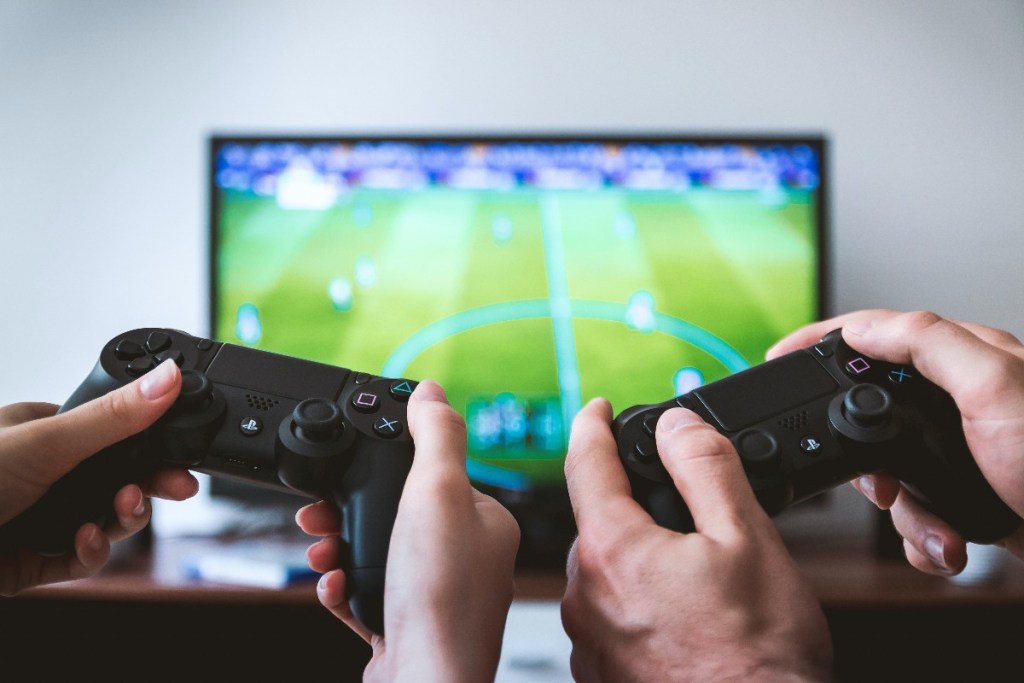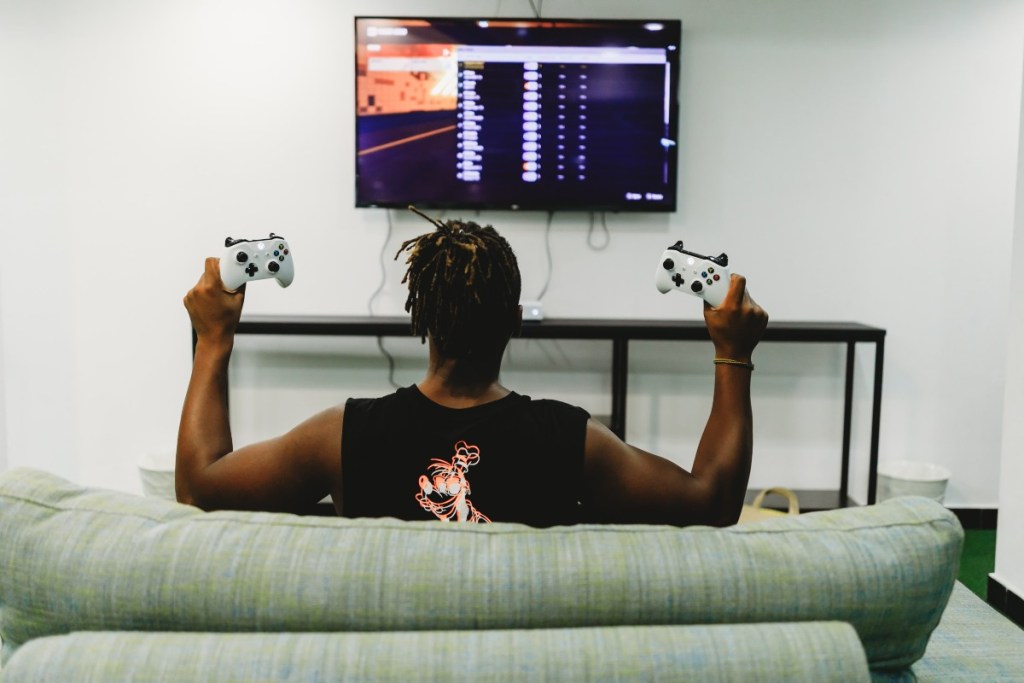Video games have something of a bad reputation. One year a study will say they make people violent, and a few years later, another one will debunk it. People who grew up without video games may like to grumble that, “Kids these days are always playing video games,” and usually follow up that “back in their day, we spent all day helping around the house or playing outside.” The implication is that video games make us lazier and less social and deprive us of fresh air.
While getting outside is great and all, and helping out is important, everyone copes with stress differently. Some people swear video games help — not hurt — them. Which is it? Can video games relieve stress? Let’s explore the link between video games and mental health.

Benefits of using video games to destress
Despite video games’ bad rap, a growing body of research says they can help reduce stress. It’s also important to note that video games don’t always entail one person playing by themselves. Gamers can compete against one another or as teammates. One 2015 study of 100 participants found that both competitive and cooperative games helped players soothe stress, and cooperative ones were the most beneficial.
What’s more, researchers at the University of Saskatchewan discovered that video games helped people relax and feel more motivated and connected. Another study of more than 1,600 participants found video games were good tools for coping with stress.
Drawbacks of using video games to destress
Though video games do reduce stress for some, they don’t work for everyone. There’s science to back this claim up, too. Violent video games, in particular, are problematic for some people’s moods. A 2012 study found that violent games stressed people out and made them more aggressive. However, it’s important to note that other research refutes the claim that violent video games lead to increased aggression in real life.
While video games may be a valuable tool in reducing stress, it’s likely best if they are part of a holistic approach to your mental health. Research shows that social support is still important and may even have a more significant impact on your mental health and fatigue levels than playing games.

Video games for mindfulness
Ultimately, the most relaxing video games are the ones that help you chill out. However, if you’re new to the game, we highly recommend these:
Captain Toad: Treasure Tracker
This game includes an option to play in cooperative mode, so you can reap the benefits of playing with someone else. The game might as well have been designed to help you feel better. Wirecutter noted the “sunny” aesthetic, comparing it to Mario. As you play, you’ll be able to get your mind off your day-to-day stressors by helping a tiny toad collect diamonds and coins. It’s not fast-paced or adrenaline-inducing, adding to its relaxation-boosting powers.
Golf Story
Playing golf in real life, whether it’s 18 holes or mini-golf, can be a great way to destress. However, if you can’t get out to a green, try Golf Story. The relaxing video game combines the fun of playing golf with a narrative. You’ll take on the role of a golfer who has to give up everything he loves for one last chance to accomplish his goals. The story will take you through eight different courses with their own cast of characters, secrets, and obstacles.
FEZ
This game will bring back memories of playing computer games as a kid. The 2D game stars Gomez, a little creature who makes a big discovery: a secret third dimension. Travel with him on a journey through time and space as he uncovers hidden treasures and solves puzzles. It’s low-key, gently paced, and full of bright, happy colors.
Monument Valley
Monument Valley features beautiful scenery and architecture that’ll immediately put you in a calm, if not enchanted, state of mind. You’ll navigate a silent princess named Ida through fantastical but challenging architecture, discovering hidden paths and trying to outwit Crow People along the way.
Much of the discussion around video games and mental health often centers around the negative impacts the hobby can have on people. However, can video games relieve stress? Yes, for some people. Remember, we’re all different, and the important thing is that you find an approach to stress management that works for you. On that note, the best video games for mindfulness are the ones that help you personally relax. If you’re just starting to use video games for stress management, you might want to avoid violent ones. Some research indicates those types of games can actually increase stress. Cooperative games like Captain Toad: Treasure Tracker tend to be better for your mental health than competitive ones. Regardless of what you choose, remember that social support is still important, so try to interact with people face-to-face or over the phone, too.



